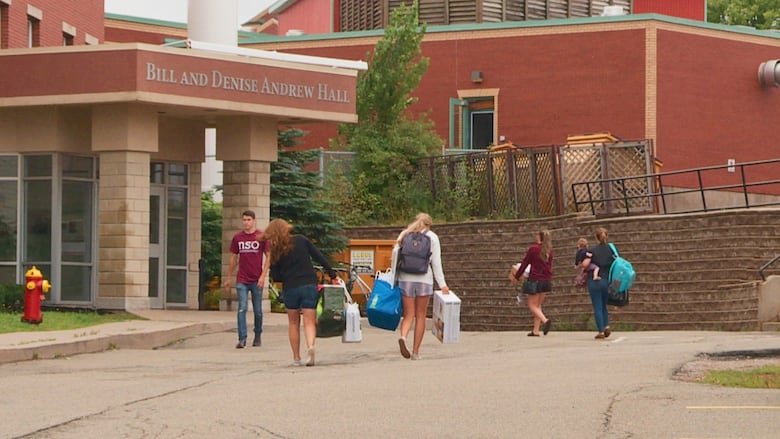P.E.I. expands Marion L. Reid grant to include students in 4 more health-care programs
'It'll make a big difference,' says Holland College president

The P.E.I. government is taking steps to ease some of the financial pressure on more Island students enrolled in post-secondary health-care programs.
The Marion L. Reid grant, which began last year, is expanding to include four more health-care programs in an effort to increase the number of workers in those fields.
Starting this fall, the grant will be available to Island students enrolled in 13 health-care programs, with the addition of occupational therapy, physiotherapy, paramedicine and dentistry.
"It'll make a big difference in our students," said Sandy MacDonald, president and CEO of Holland College.
"As things become more expensive and inflation is a problem, our students are increasingly coming to us for help financially."
The grant is open to P.E.I. residents, and students are eligible to receive it following each academic year completed in an eligible program.
The program can be taken at approved schools elsewhere in Canada or abroad, but the student must return to the Island to work in their chosen field for at least two years after graduating.
MacDonald thinks the expanded support will entice more students to stay in P.E.I. to study.
One of the school's biggest challenges is the affordability of its programs. Macdonald said Holland College's tuition is among the highest in the country.
Island students make up about 53 per cent of the college's population, but MacDonald hopes that percentage will rise to the 60-65 per cent range with the incentive of this new funding.
"If we can keep the cost down and manageable, then we're going to see more Island kids come to Holland College," he said.
'A lot of patients'
Jenn Redmond, P.E.I.'s minister of workforce, advanced learning and population, said adding additional financial support will encourage more students to pursue a higher education and ultimately fill more jobs on the Island.
"We will help with your studies and then essentially you'll come back and work in the field in P.E.I. and add to our workforce for our health-care programs," Redmond said.
Wendy Rodgers, president and vice-chancellor of the UPEI, said the university's paramedacine program being included in the grant program will help build more capacity in the health-care industry and ease pressure on the province's emergency rooms.
"We're really excited to have that program included because we are interested in growing that program and making sure that we are able to contribute to the full spectrum of health care available on the Island," Rodgers said.
"People have different levels of needs with respect to their health care and they need to have well-qualified, prepared professionals to go to for each of those components."

The CEO of the Dental Association of P.E.I. said the province's growing population means dentists can't keep up with demand — and the education required to become a dentist does not come cheap.
Dr. Mike Connolly is hopeful that with this funding will draw more Islanders into careers in dentistry.
"There are a lot of patients and not as many dentists, and the care does not happen unless we have dentists and support staff," Connolly said.
With files from Tony Davis


